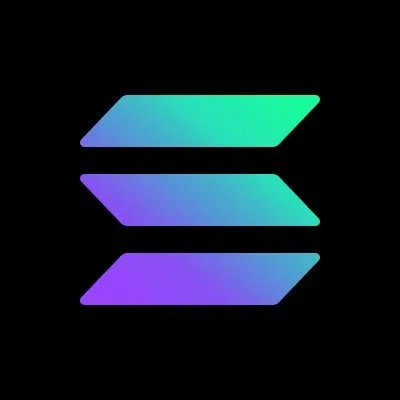
Subscribe to Bankless or sign in
Dear Bankless Nation,
Yesterday, we saw the arrival of Worldcoin, and, as expected, the community had thoughts! Today, we're unpacking the controversy and taking a closer look at some of the individual critiques of this contentious project.
- Bankless team
After years of hype, confusion and controversy, Worldcoin launched yesterday.
The audacious effort aims to create not only a unified database of humans transacting online by verification through a retina-scanning proprietary camera orb, but also a widely accessible crypto payments system that instantly awards users tokens as an incentive to join the network.
Post-launch, the coin has achieved a $22 billion fully diluted value (FDV), a figure that values the network's maximum quantity of tokens higher than most other fixed-cap crypto projects including Solana,  Optimism and Arbitrum.
Optimism and Arbitrum.
Yesterday on Bankless, we interviewed the founders of Worldcoin: Sam Altman and Alex Blania. The chat focused heavily on philosophy and execution for the project which faces numerous hurdles for broader adoption.
One of the major hurdles it is facing is substantial pushback from the crypto sector – So, what's going on?
[I'll note that the Bankless team has some diverging opinions on this topic, my thoughts below are just that, mine!]
After Worldcoin’s much-publicized launch yesterday, the community sounded off; a few in support, mostly drowned out by a louder contingent sounding alarms on perceived issues.
1/6 My issues with WorldCoin pic.twitter.com/uJxe9fzows
— ZachXBT (@zachxbt) July 24, 2023
The firehose of Worldcoin criticism can largely be separated into two categories:
- Critiques inherent to biometric "proof-of-personhood" and Worldcoin's individual implementation
- Critiques inherent to the WLD token and its distribution
Real Humans
Let's take a look at that first one. For some important context, yesterday, Vitalik penned a lengthy blog post on the topic. It is, unsurprisingly, worth reading in full.
What do I think about biometric proof of personhood?https://t.co/yozo1buW24
— vitalik.eth (@VitalikButerin) July 24, 2023
Proof-of-personhood is exactly what it sounds like, and it's fascinating, complicated and contentious. Vitalik said as much, highlighting the numerous problems potential decentralized solutions face. His writeup avoided most outright judgments on Worldcoin directly, but in avoiding outright criticism, he was already more generous than most.
Worldcoin is still stupid and bad, in four points.
— Andrew M. Bailey (@resistancemoney) July 7, 2023
1. The team, incredibly, was not prepared for people to sell credentials. It doesn't solve one problem it was supposed to solve. pic.twitter.com/0hbwkgufgQ
The scope of criticism is representative of how complicated this effort is. It’s frankly surprising that it has gotten this far. It surely wouldn’t have without Altman’s involvement. His tech luminary star has never been brighter and Worldcoin has taken on the facet of a social token tied to the anticipated success of his other ventures.
Worldcoin’s value is, in many ways, intrinsically tied to the AI revolution that Altman’s full-time job at ![]() OpenAI is spearheading. An internet filled with machines that act more like humans means that you can no longer be certain whether the entities you’re influenced by online are humans representing themselves or are part of sophisticated botnets. This is already disruptive today. With Worldcoin's World ID proof-of-personhood solution, you will be able to distinguish unique human actors from AI actors online – theoretically at least.
OpenAI is spearheading. An internet filled with machines that act more like humans means that you can no longer be certain whether the entities you’re influenced by online are humans representing themselves or are part of sophisticated botnets. This is already disruptive today. With Worldcoin's World ID proof-of-personhood solution, you will be able to distinguish unique human actors from AI actors online – theoretically at least.
The reality is that something like this will probably have to exist soon.
Vitalik’s post above went into some additional detail here. The world is moving deeper online. Yes, an internet ID system is a nesting doll of dystopian existential risks, and we shouldn’t rush into anything. At the same time, the danger of waiting until something perfect comes along means risking a worst case government-backed scenario.
But realistically, something pretty disastrous would probably have to happen for (in my case) the U.S. government to get carte blanche public backing to build something like this. The government is also fortunately fairly inept at being ahead of the tech dystopia curve (on their own), despite best efforts. At this particular moment in time, the choice isn't Worldcoin, or bust.
The most likely near-term solution to the above problem would probably come from an existing centralized tech giant like an Apple, which has, to their credit, done a pretty thoughtful job at creating privacy-preserving trustless biometric verification in their products so far. How this competency and good intention maps to managing this very different problem is its own question, as is whether they will have a near-term business interest in solving proof-of-personhood, and critically whether they would be able to stave off a government backdoor.
Trying to achieve a decentralized alternative is obviously ideologically preferable, but it's a challenge.
Many of the critiques Worldcoin faces today rely on the trust one must bestow to various actors along the value chain that have their own motivations (Is my Orb operator malicious? Was the manufacturer of my Orb malicious?)
The biggest fear being discussed today is whether Worldcoin is gobbling up millions of eyeball scans and holding all of the biometric keys and their associated identity links. Worldcoin maintains that these scans are not held en masse, rather the hashes produced by them are, which would prevent someone from matching a real world identity to a World ID. This line hasn't satisfied critics who are waiting for answers on edge cases, but further critiques ultimately boil down to questioning whether this project just requires an unacceptable amount of trust for a so-called "decentralized" option.
Who's building the social-graph-based alternative to worldcoin?
— RYAN SΞAN ADAMS - rsa.eth (@RyanSAdams) July 24, 2023
Proof of humanity, BrightID, Idena, and Circles are fantastic attempts, but have not scaled yet.
So what's next? pic.twitter.com/7AKuZuhBdy
Many, but not all, of Worldcoin's centralization quirks feel fundamental to building a company that solves proof-of-personhood in this way. The company is running into problems that would likely face other startups attempting the same thing, the question then becomes whether a for-profit startup is the right project to build a solution here, or if this incentive structure is just too rife for exploitation and a less precise social graph-based decentralized method should be rallied around OR we should take a chance on a mobile giant like Google or Apple doing things in a thoughtful way once the use case of such a system becomes clearer.
Going centralized and hoping for the best is clearly not a great option, though one should also question whether having Big Tech's heir apparent CEO and high-profile venture investors holding outsized portions of governance power in a decentralized system is truly the best available alternative.
WLD Whales
For full disclosure, I had my retinas scanned by the Orb a few weeks ago! (And no, the eventual 25 OrbBucks I have waiting for me are not enough to influence my opinions on the project) I've always been an early tech adopter, perhaps with time I’ll regret this choice, but I also think that there’s an odd amount of fixation on the retina-scanning/hashing element of the stack relative to other issues with the project.
Such as... the WLD token itself.
2/ Low Float, High FDV Coin
— Matt Batsinelas (@MattyIceCO) July 24, 2023
The max circ supply of $WLD at launch is 143M WLD, consisting of:
- 43M $WLD airdrop
- 100M $WLD loaned over 3months to non-US market makers
Assume TWAP of ($2.6)
- $111.8m airdrop
- $260m market makers pic.twitter.com/4SkGAO2HMH
Worldcoin raised a bunch of money from VCs, reportedly north of $500 million. Plenty of token ecosystems rely on pre-mines or institutional sales to get funding for early development, at the same time few of these ecosystems have relied on marketing the phrase “universal basic income.”
8/10 Worldcoin could have issued the token as a non-transferable asset to users and waited for real traction before allowing it to become publicly tradable. They should have let its internal usage in b) prove itself as a utility first without the speculative overhang on it.
— William Mougayar (@wmougayar) July 24, 2023
There’s something ethically murky about a speculative UBI token that’s already pre-allocated to private investors and insiders to such a substantial degree. This is obviously a capital-intensive vision that a young startup could not achieve without raising a boatload of cash, but maybe rather than accepting that 25% of the token should go to insiders from the beginning, we should be staring down whether this incentive structure works for this problem.
There’s such a substantial platform opportunity here, that one wonders why a team co-founded by one of tech’s brightest luminaries needed to rely so heavily on token grants to build this.
4/6 WorldCoin increased the amount allocated to insiders from 20% to 25% according to Coindesk
— ZachXBT (@zachxbt) July 24, 2023
Yet an early WorldCoin onboarding video claimed
“WLD is better than BTC”
“Bitcoin is just in the hands of a very few rich people” https://t.co/G2TbCegAjd pic.twitter.com/tCUIJLgi0I
Tech has always found a way to monetize public infrastructure investments. Facebook has spent billions this decade funding satellite internet in Africa. The goal there was never rent-keeping along the way but the platform opportunities that would arise at the end of that journey when they had onboarded a continent of new customers to their services.
If a project like Worldcoin succeeds and decentralizes, the backing infrastructure will still have more than ample monetization opportunities.
Closing
I’m not sure whether the crypto community should give Worldcoin a shot.
Truthfully, this all feels pretty messy! And yet, I think it’s important to realize that regardless of this implementation, proof-of-personhood is an important problem to be tackling, even if it feels icky.
Worldcoin doesn't inherently deserve your support just because you think the overarching problem is important, you need to take a look at the vision of the world its individual implementation and distribution enables and decide whether that's the world-wide coin you want.
Worldcoin cheapshots are a dime-a-dozen
— DavidHoffman.eth 🛡️🦇🔊 🏴 (@TrustlessState) July 24, 2023
Valid attempts at a decentralized proof-of-personhood protocols are invaluable
Action steps
- 🌐 Watch our interview with the Worldcoin co-founders
- 🎧 Listen to David and Ryan's debrief on the Worldcoin episode



